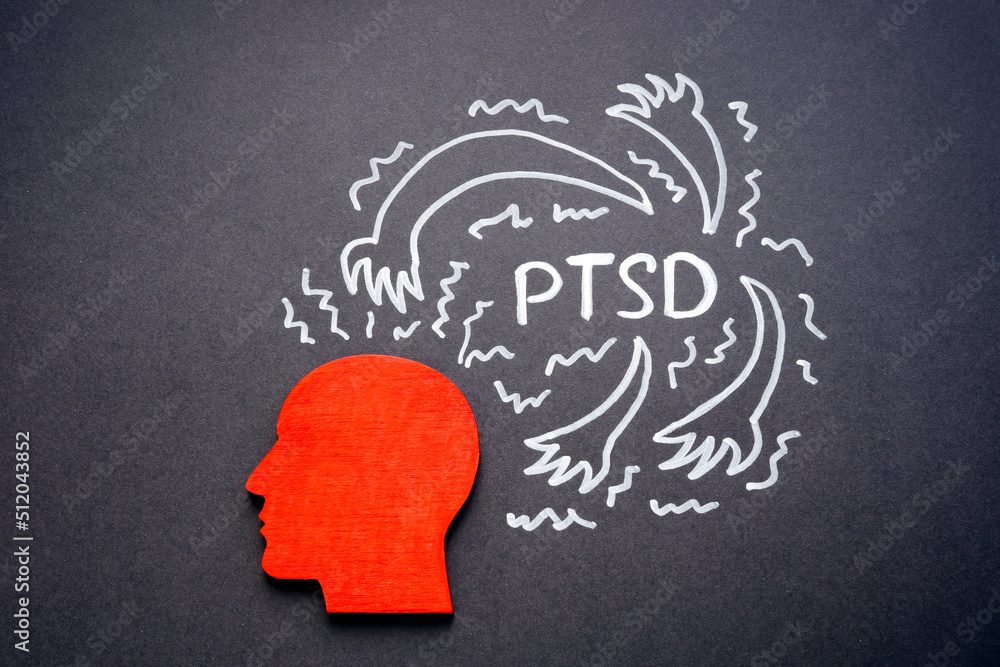What is on this page
Understanding PTSD
Trauma is a profoundly distressing event that can leave a lasting impact on a person’s life. Posttraumatic Stress Disorder (PTSD) is a common condition that can result from experiencing trauma. PTSD can be debilitating and affect a person’s mental and emotional well-being. Understanding PTSD and how it affects the brain is essential in helping people recover from the condition. In this article, we will discuss what PTSD is, how trauma affects the brain, how PTSD is diagnosed and treated, and how people can cope with PTSD.
What Is PTSD?
Posttraumatic Stress Disorder (PTSD) can develop after experiencing or witnessing a traumatic event. Trauma is an event that is perceived to be life-threatening or dangerous. PTSD can be triggered by various traumatic events, such as combat, sexual assault, natural disasters, car accidents, or witnessing a violent crime.
The characteristics of PTSD are varied and can range from flashbacks to nightmares and avoidance behaviours. A person with PTSD may experience intense and prolonged fear, anxiety, and sadness. The characteristics of PTSD can last for months or even years and can significantly impact a person’s daily life.
How Does Trauma Affect The Brain?
Trauma can cause changes in the brain, including changes to the amygdala, hippocampus, and prefrontal cortex. The amygdala is part of the brain responsible for processing emotions, and trauma can cause it to become overactive. This can result in heightened feelings of fear, anxiety, and stress, even in situations that are not life-threatening.
The hippocampus is the part of the brain responsible for memory formation and retrieval. Trauma can cause the hippocampus to shrink, making it difficult for a person to remember specific details about the traumatic event. This can lead to confusion, disorientation, and a sense of being disconnected from reality.
The prefrontal cortex is the part of the brain responsible for decision-making, problem-solving, and regulating emotions. Trauma can cause changes in the prefrontal cortex, resulting in difficulty regulating emotions and making it harder for a person to think clearly or make decisions.
Characteristics of Trauma and PTSD
The characteristics of trauma and Posttraumatic Stress Disorder (PTSD) can be profound and overwhelming, affecting every aspect of a person’s life. The emotional pain of trauma can be tough to manage, as it can feel all-consuming and unrelenting. PTSD characteristics can include intrusive thoughts and memories, flashbacks, nightmares, and emotional distress triggered by reminders of the trauma.
People with PTSD may also experience hypervigilance, feeling on edge or easily startled, avoidance of specific people or situations, and negative changes in mood and cognition. These symptoms can create significant challenges in daily life, often leading to feelings of isolation, hopelessness, and despair. Recognizing that these symptoms are not signs of weakness or failure but rather a natural response to an overwhelming and traumatic experience is essential. With time, support, and successful support, it is possible to find healing and recovery from trauma and PTSD.
How is PTSD Diagnosed?
PTSD is diagnosed by a mental health professional using specific criteria outlined in the Diagnostic and Statistical Manual of Mental Disorders (DSM-5). The criteria for PTSD include experiencing or witnessing a traumatic event, re-experiencing the event through flashbacks or nightmares, and avoiding situations that may trigger event memories. Other characteristics include harmful changes in mood, behaviour, and hypervigilance.
Approaches for treating PTSD usually involve a combination of medication and psychotherapy. Antidepressant medications are commonly used to treat characteristics of PTSD, such as depression and anxiety. Psychotherapy can be successful in helping people manage their PTSD and work through the trauma. Cognitive-behavioural therapy (CBT) and Eye Movement Desensitisation and Reprocessing (EMDR) are two types of therapy commonly used to treat PTSD. CBT helps people identify and challenge negative thoughts and beliefs about the trauma, while EMDR reprocesses the traumatic event through guided eye movements.
Mindfulness-based interventions, such as mindfulness-based stress reduction (MBSR) and mindfulness-based cognitive therapy (MBCT), are also helpful in helping people cope with PTSD. Mindfulness practices involve focusing on the present moment and becoming more aware of one’s thoughts and feelings. This can help people become more resilient and better cope with PTSD.

How Can Therapy Support The Understanding Of PTSD?
Therapy is a powerful tool for understanding Posttraumatic Stress Disorder (PTSD). Through therapy, people can work with mental health professionals to better understand their experiences, feelings, and behaviours related to trauma. Therapists can provide a safe and non-judgmental space for people to explore their emotions and work through the trauma in a supportive environment. They can also teach skills and methods to manage the characteristics of PTSD, such as mindfulness practices, deep breathing exercises, and relaxation methods. With the help of therapy, people can gain a greater understanding of their PTSD and work towards healing and recovery. It can be a transformative and soulful journey that brings a sense of hope and renewed strength to those struggling with PTSD.
Living With PTSD
Living with PTSD can be challenging, but there are things that people can do to help manage their PTSD Practicing self-care is essential, and it is vital to prioritize physical and emotional health. Getting enough sleep, eating a healthy diet, and exercising regularly can help reduce anxiety and depression. Taking time to engage in activities that bring joy and a sense of relaxation, such as reading, listening to music, or spending time in nature, can also be helpful.
Seeking support from loved ones and professional help is also essential in living with PTSD. Talking to a therapist or counsellor who specializes in trauma can be beneficial in helping people work through their feelings and thoughts related to the trauma. Joining a support group or community of people who have experienced similar traumatic events can also help find a sense of connection and understanding.
It is essential to recognize that everyone’s journey to healing from trauma and PTSD is unique. There is no “right” way to cope with the condition; finding what works best for each individual is essential.
PTSD is a common condition that can result from experiencing trauma. Understanding PTSD and how it affects the brain is essential in helping people recover from the condition. PTSD can be a debilitating condition affecting a person’s mental and emotional well-being, but options are available to help manage characteristics. Living with PTSD can be challenging, but taking care of physical and emotional health, seeking support from loved ones and professionals, and finding what works best for each individual can help find healing and recovery. It is essential to know that recovery is possible, and no one has to go through the healing process alone.

